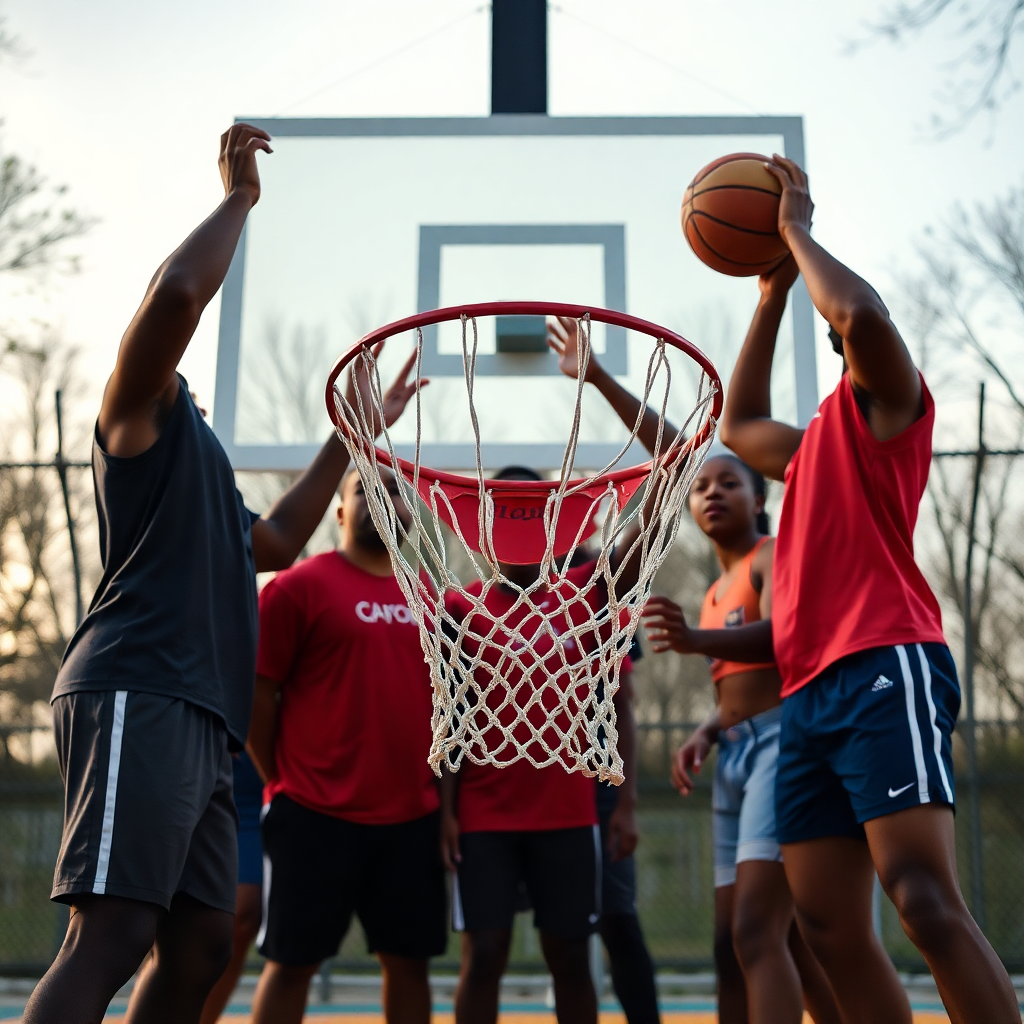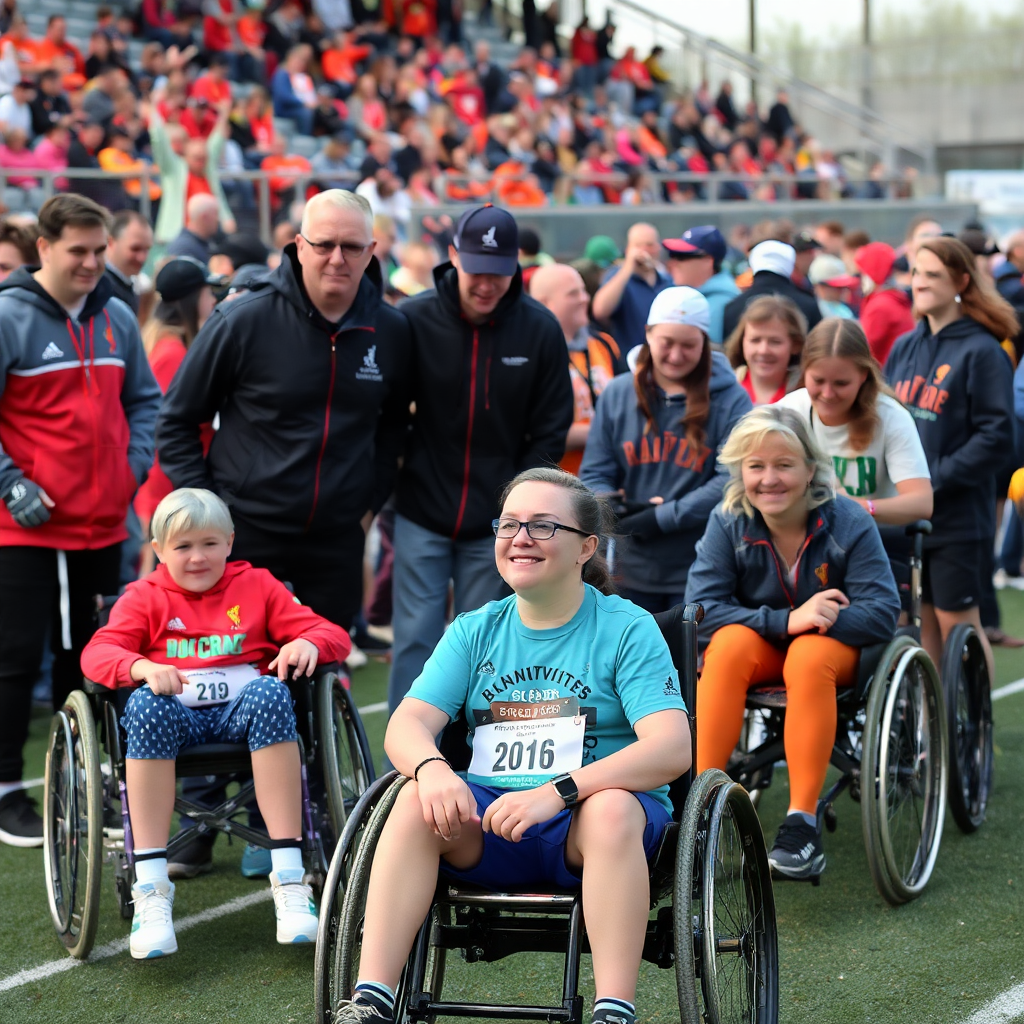How Sports Strengthens Powerful United Communities
How Athletics Strengthen Communities
Powerful United Communities
Sports are more than just games—they serve as powerful tools for uniting communities, fostering connections, and driving positive social change. Whether at the grassroots level or on a national scale, athletic events bring people together, promote inclusivity, and provide opportunities for education, health, and economic growth. But how exactly do sports help communities thrive?

Building Social Connections Through Sports
Encouraging Inclusivity and Teamwork
Sports foster a sense of belonging, allowing individuals of different backgrounds, ages, and abilities to come together. Whether through local leagues, amateur clubs, or school teams, people build friendships and strengthen social ties through shared experiences.
Breaking Social Barriers
Athletics transcend cultural and economic differences, providing a platform where people interact regardless of their circumstances. Community sports programs help bridge gaps and foster mutual understanding among diverse groups.

Improving Mental and Physical Health
Promoting Active Lifestyles
Participation in sports encourages physical fitness, helping individuals maintain healthy routines. Regular exercise reduces the risk of illness, strengthens muscles, and enhances overall well-being.
Boosting Mental Resilience
Sports improve mental health by reducing stress, enhancing self-esteem, and fostering discipline. The emotional benefits of teamwork, competition, and goal-setting contribute to overall psychological wellness.
Economic Growth and Job Creation
Opportunities for Employment
Sports create job opportunities, from coaching and officiating to event management and sports journalism. Athletic programs stimulate local economies by supporting businesses related to equipment sales, venue management, and tourism.
Attracting Investments and Tourism
Major sporting events bring revenue to communities, attracting visitors and sponsors. International competitions, such as marathons or championships, boost tourism and strengthen local businesses.

Supporting Youth Development and Education
Teaching Life Skills Through Athletics
Sports provide young people with valuable life skills, such as leadership, discipline, and teamwork. Participation in structured athletic programs helps students build confidence and develop problem-solving abilities.
Providing Opportunities for Scholarships and Careers
Many educational institutions offer scholarships based on athletic performance, providing students with academic and professional opportunities they might not otherwise access. Sports also serve as pathways to professional careers in coaching, sports science, and medicine.
Using Sports for Social Change and Advocacy
Empowering Marginalized Groups
Sports give underrepresented communities a voice, helping athletes advocate for equality and inclusivity. From gender diversity in sports to increased access for people with disabilities, athletics continue to drive social change.
Creating Awareness for Global Issues
Athletes and sporting events often serve as platforms to raise awareness on pressing issues, such as climate change, poverty, and mental health. Campaigns and initiatives launched by sports organizations influence public discourse and policy-making.
Strengthening Community Identity and Pride
How Local Teams Create a Sense of Belonging
Sports teams—whether local clubs or national franchises—become symbols of regional pride. Fans rally behind their teams, creating a shared identity that strengthens community ties and local culture.
Celebrating Achievements and Milestones
Sports victories and championships foster collective celebration, giving communities something to unite around. Whether it’s a school team winning a tournament or a national team securing victory, these moments build lasting memories and shared joy.
Volunteerism and Community Engagement in Sports
The Role of Volunteers in Sports Development
Many community sports programs rely on volunteers, from coaches to event organizers. Their contributions ensure that sports remain accessible to all, fostering a spirit of generosity and engagement within the community.
Encouraging Social Responsibility Through Sports
Athletes and sports organizations often participate in charitable initiatives, promoting causes such as youth development, health awareness, and environmental sustainability. These efforts enhance civic engagement and community welfare.
Inclusion of Adaptive and Accessible Sports
Expanding Opportunities for Athletes with Disabilities
Sports programs dedicated to accessibility—such as wheelchair basketball and para-athletics—ensure that individuals with disabilities can compete and engage in physical activity. These programs promote inclusivity and challenge societal perceptions of ability.
How Adaptive Sports Inspire Communities
Events like the Paralympics showcase the talent and determination of adaptive athletes, inspiring communities to support equal opportunities for all individuals.

The Psychological Benefits of Sports Participation
Building Self-Confidence Through Competition
Sports instill confidence by helping individuals set and achieve personal goals. Whether mastering a skill or overcoming challenges, the sense of accomplishment gained through athletics contributes to personal development.
Managing Stress and Emotional Well-Being
Engaging in sports provides an outlet for emotions, improving mental resilience and overall well-being.
Conclusion
Sports are much more than recreation—they are vital in fostering community growth, promoting health, strengthening economies, supporting youth development, and driving social change. Whether through local leagues or international tournaments, athletics provide people with opportunities to connect, learn, and thrive. By investing in sports, communities can build healthier, stronger, and more unified societies.
Join the Conversation
How has sports helped your community?







5 Comments
Comments are closed.